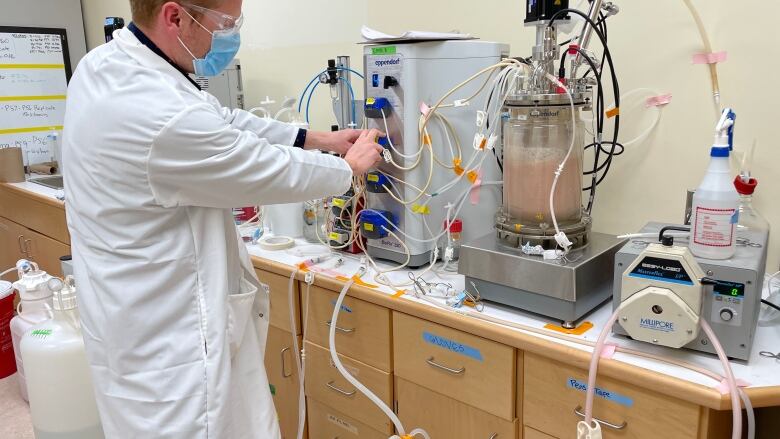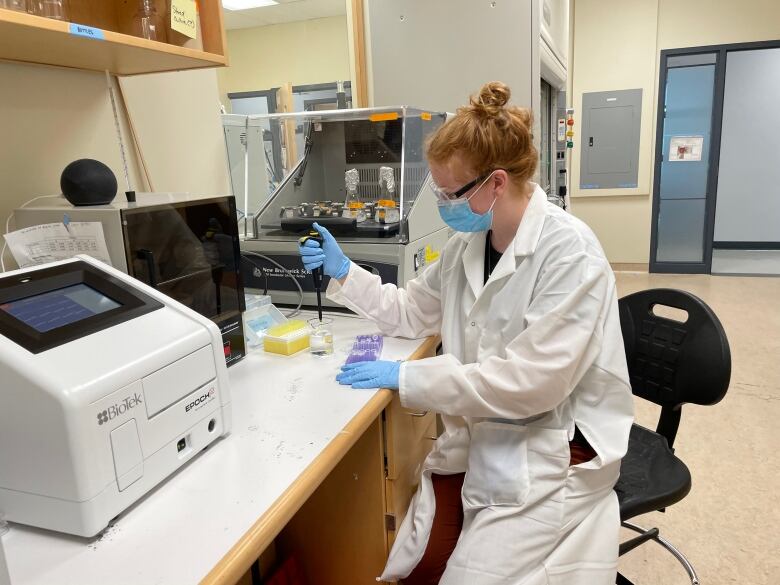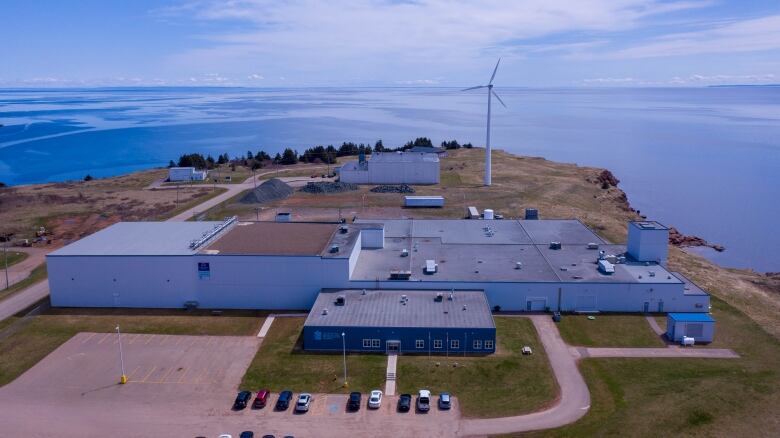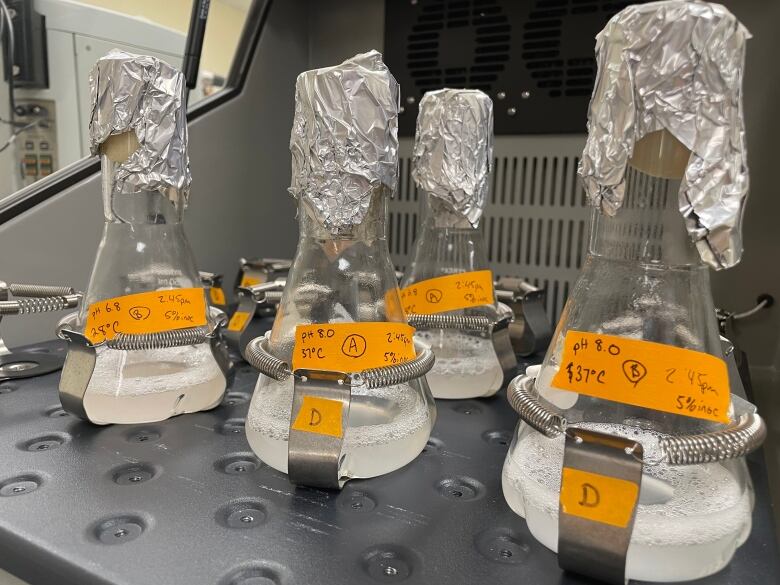Halifax company growing fish food from greenhouse gases gets funding boost
'It's a global market that we're interested in,' says company president

A Halifax biotechnology company that uses greenhouse gases to grow aquaculture fish food is getting $2.6 million from Canada's Ocean Supercluster innovation program.
It is fuelling the company's ambitions to become a global player in the world's fastest-growing food sector.
DeNova wants to grow microbes in methanol and convert the dried protein into an ingredient in fish feed.

The operation, which is in its early stages, is based at a National Research Council laboratory in Halifax, but president Brianna Stratton says the company is poised to take the next step.
"It's a global market that we're interested in," Stratton said.
"DeNova's mission is to really target the largest feed manufacturers. Our mission is to create a sustainable shift in the way that we're purchasing and manufacturing feeds and shifting those diets to sustainable ingredients like DeNova's protein."
Capturing methane gas
The company plans to capture methane from flare gas in the oil-and-gas sector in Alberta and convert it on site into methanol. It will then be transported to a production facility where the methanol will feed and grow microbesin bioreactors.
Once the bacteria is grown out, it is dried to a powder that can be added as an ingredient in feed pellets.

The P.E.I.-Walmart connection
DeNova's protein powder has been added to pellets manufactured at the Center for Aquaculture Technology in Souris, P.E.I., where it has been tested on juvenile Atlantic salmon.
The sprawling facility,with 100 fish tanks, is owned by Cuna del Mar, a U.S.-based fund that invests in open-ocean aquaculture.
The fund is backed by members of the Walton family, founders of the Walmart chain.
Stratton's father, Robert Orr, manages Cuna Del Mar and is chairman of DeNova.

Laterthis month, the Center for Aquaculture Technology will test DeNova-treated pellets in adult Atlantic salmon completing a life-cycle evaluation of the fish.
"We had very powerful results," said Stratton. "Certainly very healthy fish across all of our test diets and very bioavailable, digestible, happy fish. So we're excited and we believe that we're going to [get] the same results in this trial."
The company's protein in fish is safe for people to eat, she said.
Growth plan
In the next three-to-five years, the company will try to take its technology from the laboratory to commercial production.

DeNova intends to have prototype production facilities within three years and go to market within five.
"We really think we have something special here," Stratton said. "But it's moving from, 'How do you do this at lab scale and how do you now move this to being in the hundreds-of-thousands-of-tonne scale in a much larger and larger operation?'
"The next three years is really focused on both technology platforms and moving through prototypes, moving through various pilots and scales and getting to a point where we can do this really cost-effectively."
The company also has an office in Calgary.
On Monday, the OceanSupercluster announcedfunding details for the "sustainable protein for aquaculture" project led by DeNova.
"This game-changing project represents significant developments in science and technology and has never been done before," the Ocean Supercluster said in a release.
The Supercluster is putting up $2.6 million, with project parties putting up the remainder of the overall $6-million project cost.
In addition to DeNova, the Center for Aquaculture Technologies Canada, Natural Products Canada, Dalhousie University, the National Research Council of Canada, Atlantic Canada Opportunities Agencyand Cooke Aquaculture are participating.
Ocean SuperCluster the latest injection
DeNova is not identifying its private investors.
In addition to the investment to be announced today, the company has received public money from a variety of government sources tasked with promoting new technologies.
In April, the Atlantic Canada Opportunities Agency loaned the company $250,000 to help develop its prototype to convert emissions into methanol.
In 2020, ACOA lent the firm $500,000. It also received a $307,000 grant from the National Research Council and and $100,000 from the Nova Scotia Innovation Hub.
In April, it received an undisclosed equity investment from Natural Products Canada, which is federally funded.
Natural Products Canada said it was part of DeNova's most recent financing round"which includes other prestigious Canadian and international Venture Capital and family offices who see the exponential opportunity in this Canadian technology."
Stratton saidit's unlikely the project would have got this far without the help.
MORE TOP STORIES












_(720p).jpg)


 OFFICIAL HD MUSIC VIDEO.jpg)
.jpg)



























































































